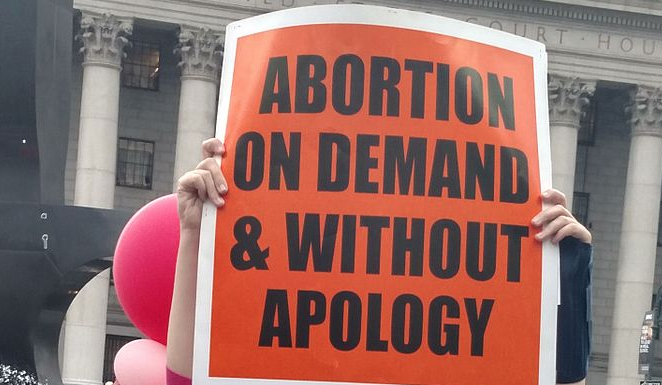OPINION | CNN – In some alternate universe, Supreme Court Justice Ruth Bader Ginsburg retired during the Obama presidency and Democrats were able to push through a successor to the conservative Justice Antonin Scalia.
In that universe, nobody is talking about an end to nearly 50 years of nationwide access to abortion rights.
But here we are.
There’s a chance abortion could be illegal in much of the country in the near future since Mississippi asked the court this week to overturn Roe v. Wade. (See story below.)
What happens if the court overturns Roe v. Wade?
Mississippi is one area where availability of legal abortion would decline precipitously if the ruling is overturned. Abortion access would not simply end nationwide, but rather state laws would take over.
A New York Times analysis published in May suggested access would be most affected in the American South and Midwest. Abortion could become illegal in 22 states and remain largely unchanged in 28.
Ten states have passed laws that would trigger in the event Roe is overturned and automatically ban all abortions. They include both Dakotas, Idaho and Utah, and a band of states that stretches from Kentucky down to Louisiana. And some states still have laws on the books that ban abortion that would presumably revive if the case is overturned, according to the Guttmacher institute.
What brings us to this moment is not a mass movement of Americans, but rather two unexpected Supreme Court deaths, some extraordinary maneuvering by then-Senate Majority Leader Mitch McConnell and a legal challenge by Mississippi.
The Supreme Court can influence elections. Court nominations have featured to different degrees in each of the two most recent presidential elections, and in both cases the voters most motivated by the issue were supporters of the Republican candidate.
In 2016, the court was a motivating factor. There was an open seat and ideological sway of the court was in play after Scalia died … READ MORE.
State Attorney General Tells Supreme Court to Overturn Roe, Let States Ban Abortions
Today, Fitch filed her brief with the Supreme Court, defending the right of the people to pass laws that protect life and women’s health and address legitimate interests of the State:
“There are those who would like to believe that Roe v. Wade settled the issue of abortion once and for all,” said Attorney General Fitch. “But all it did was establish a special-rules regime for abortion jurisprudence that has left these cases out of step with other Court decisions and neutral principles of law applied by the Court.
“As a result, state legislatures, and the people they represent, have lacked clarity in passing laws to protect legitimate public interests, and artificial guideposts have stunted important public debate on how we, as a society, care for the dignity of women and their children. It is time for the Court to set this right and return this political debate to the political branches of government … ”



